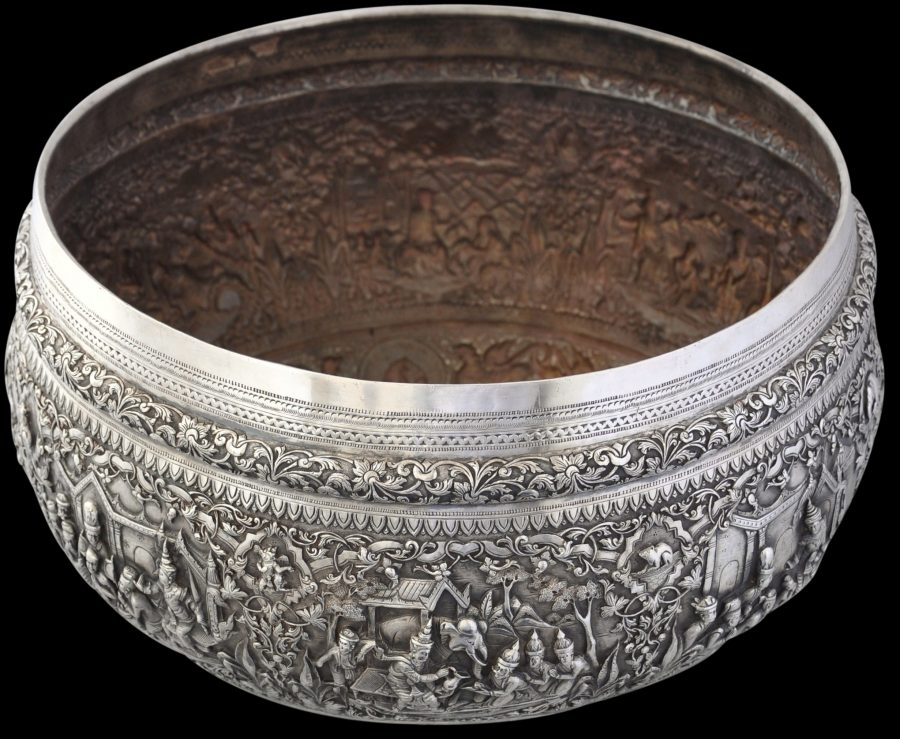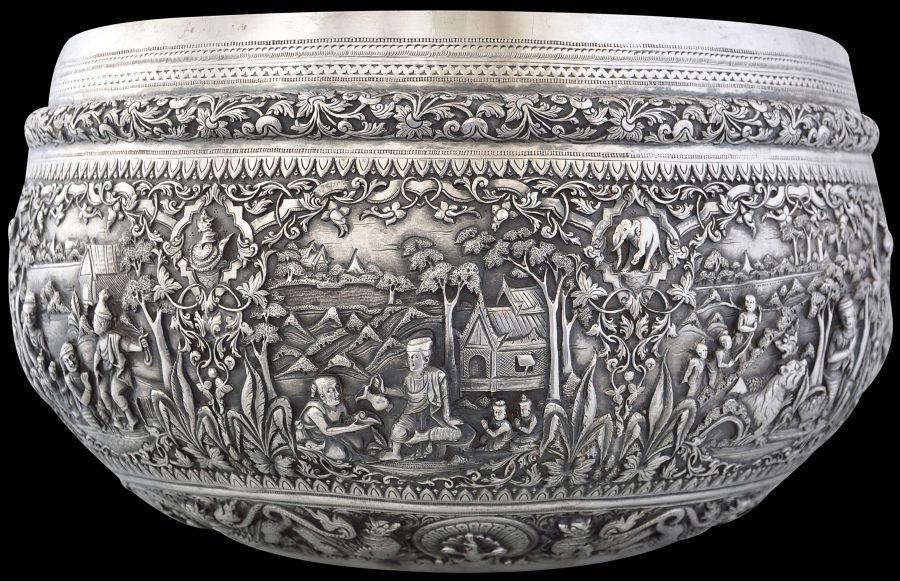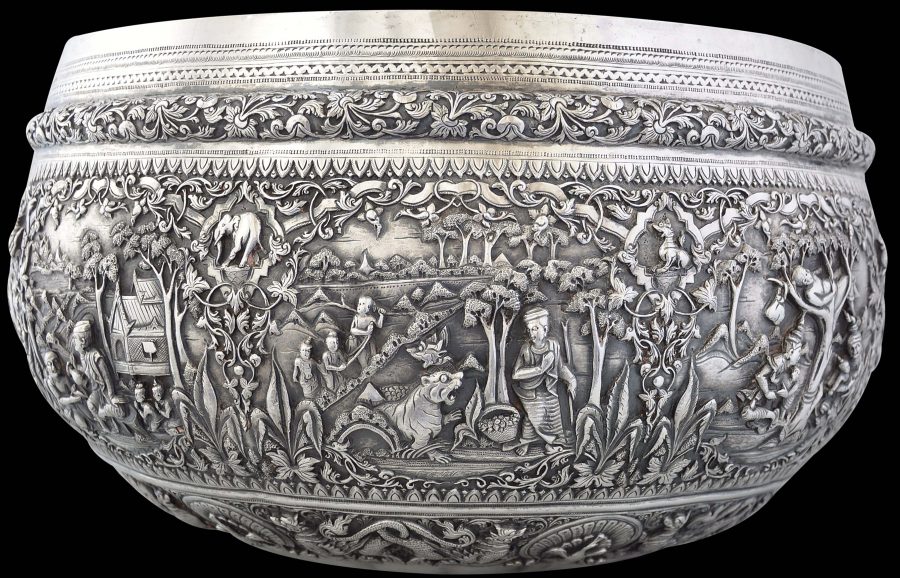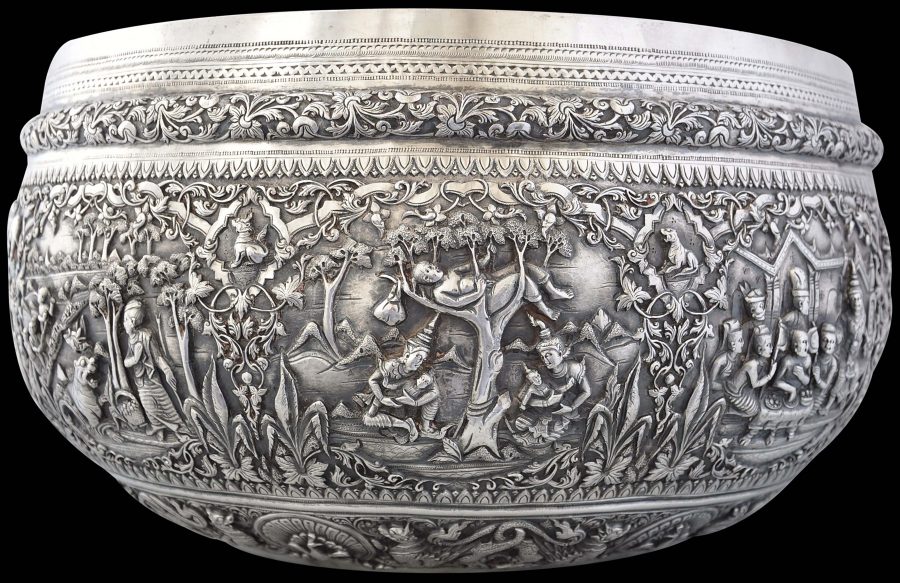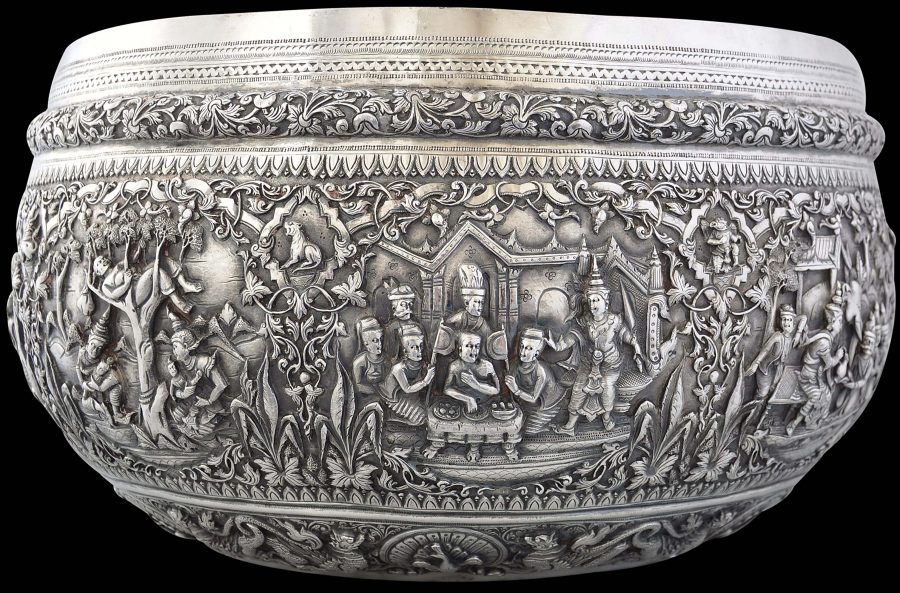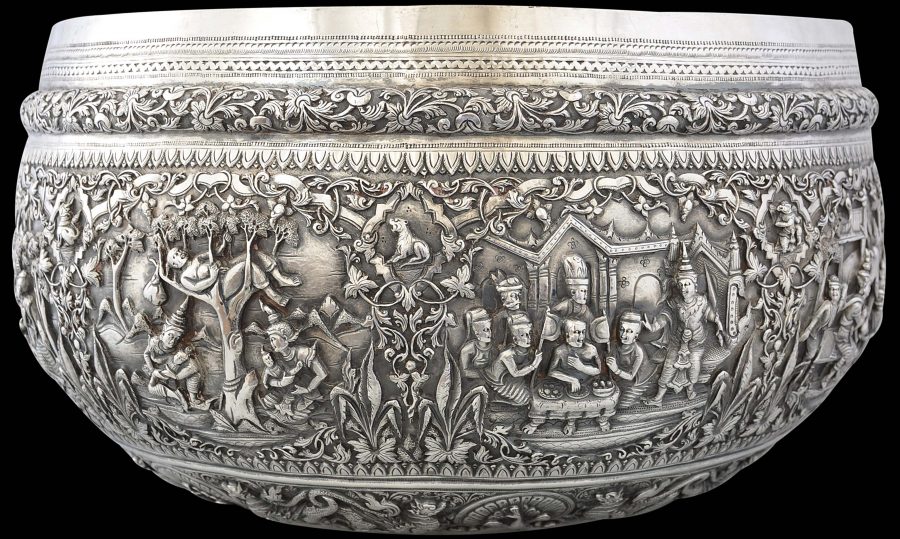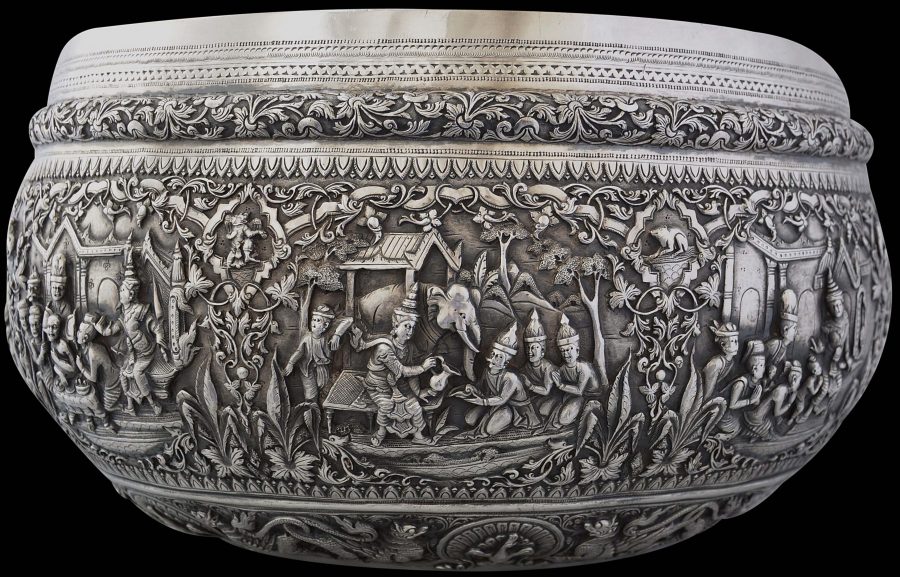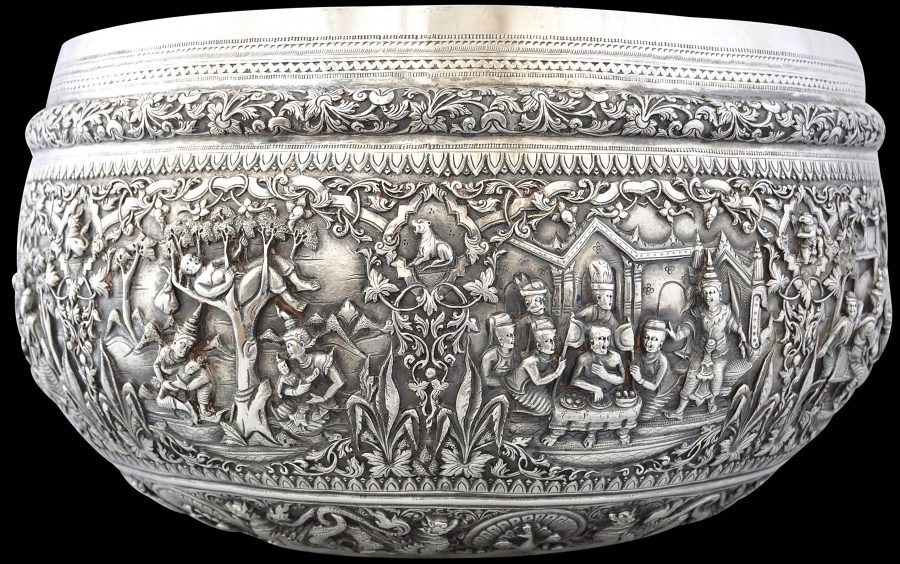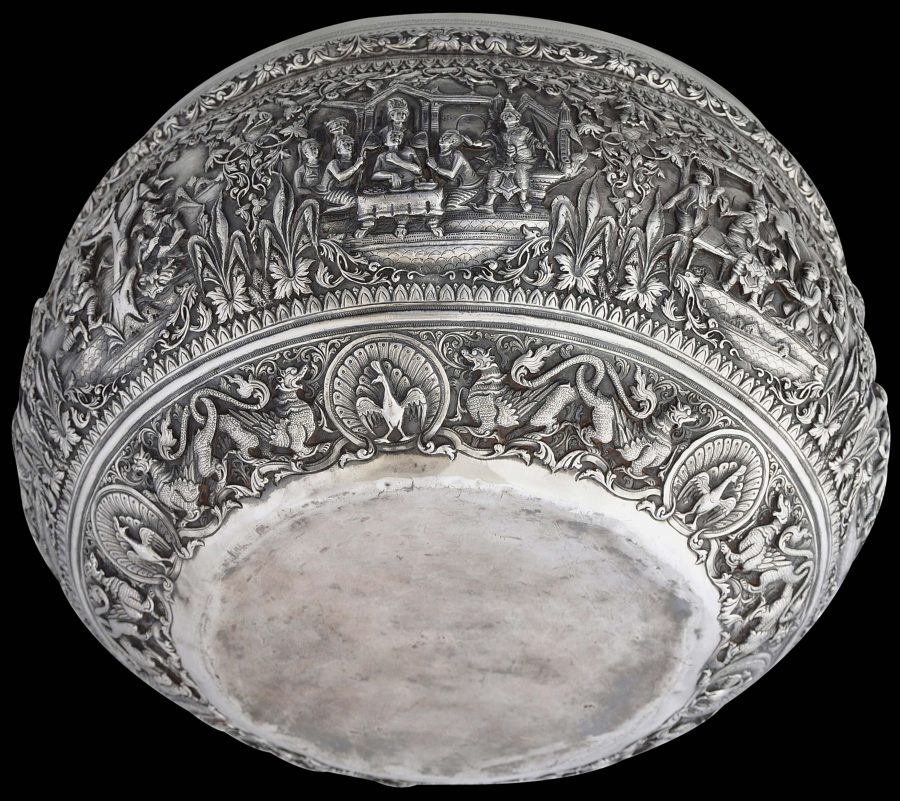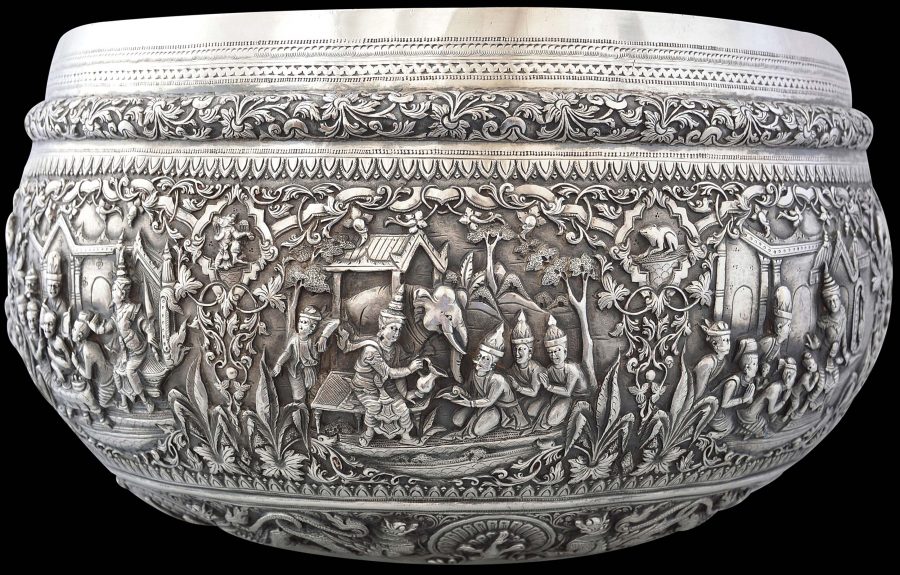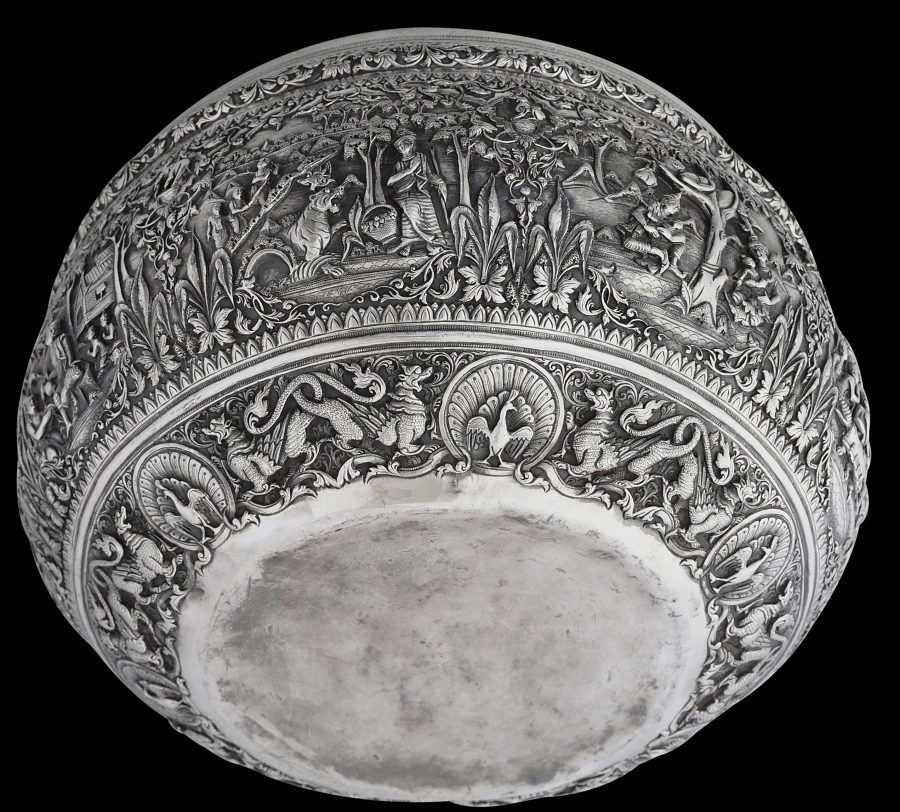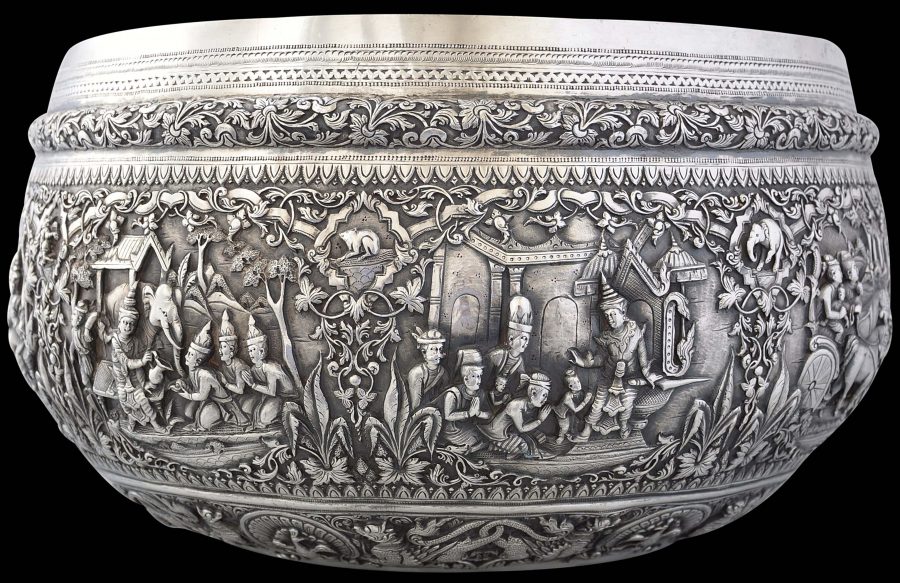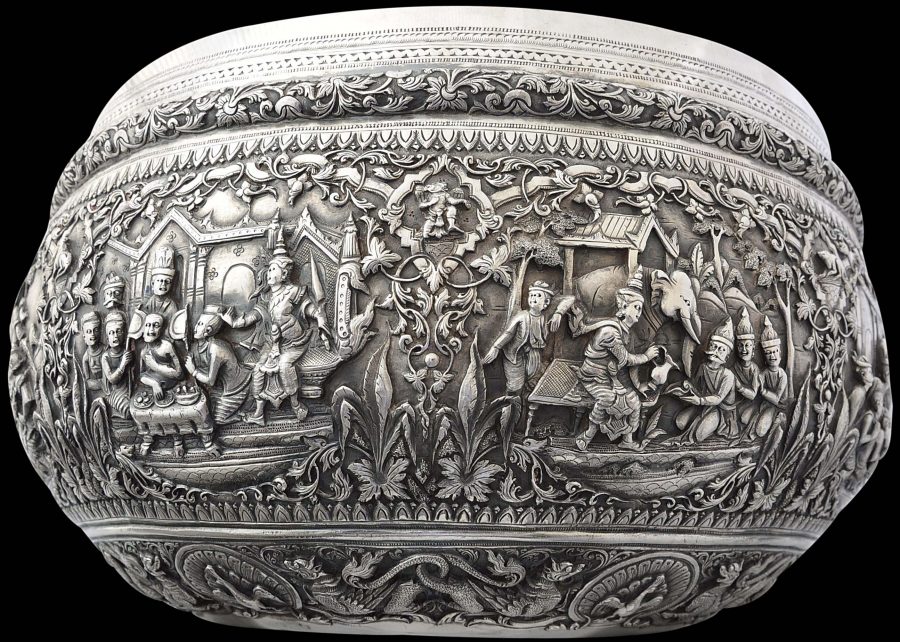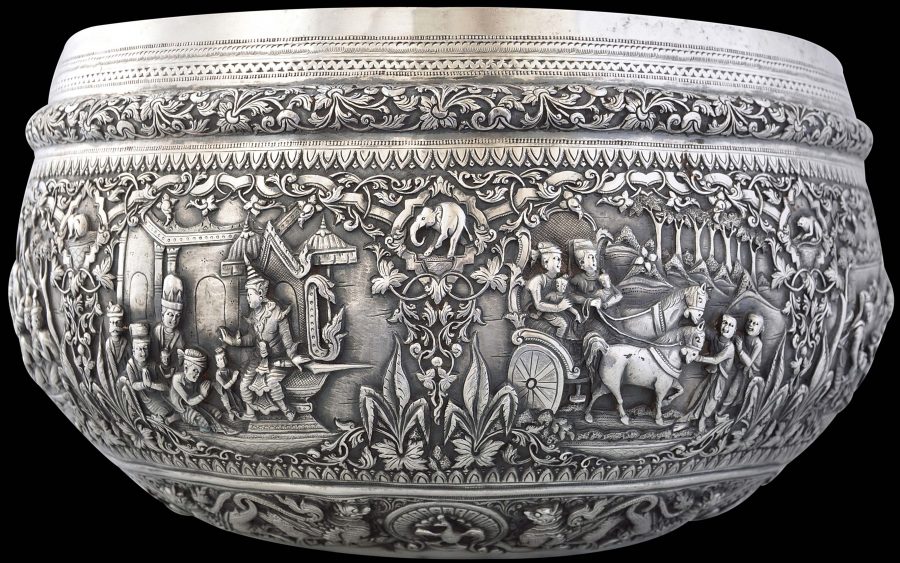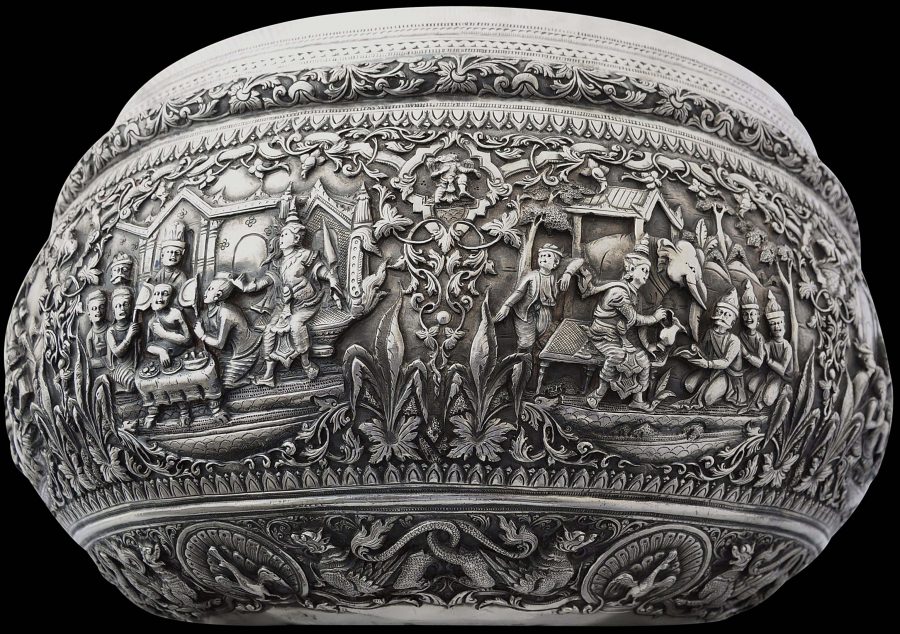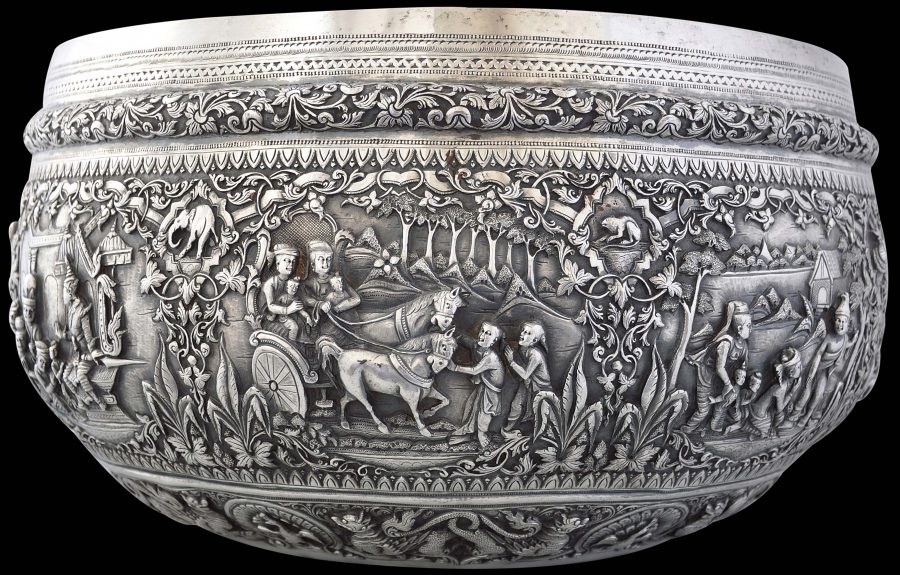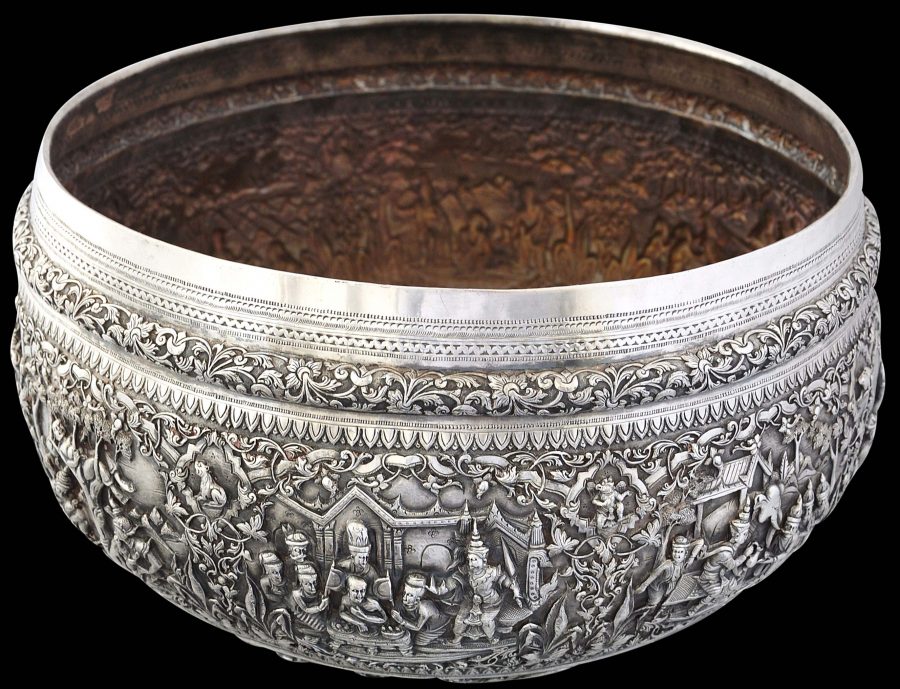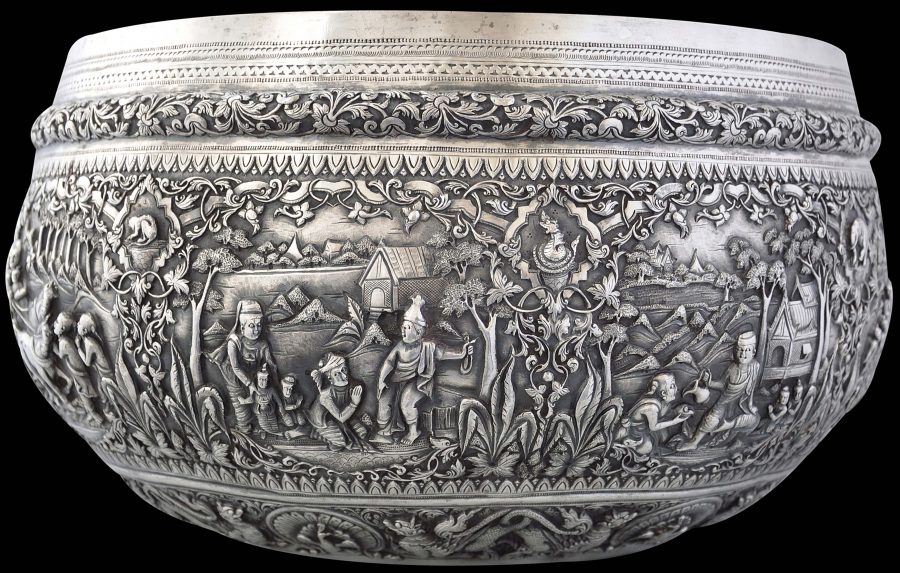This is the most extraordinary Burmese silver bowl that we have seen. It is one of the largest, and without doubt, the finest. Typically, the quality of the repousse work on larger Burmese bowls declines with size but that is not so with this bowl. Arguably, it is the finest such bowl commercially available today.
The upper border comprises a raised, elaborate dha-zin-gweior stylised orchid motif, beneath which there is a down-turned lotus petal kya-hlan border.
The central frieze comprises the most wonderful series of eight panels depicting (most probably) stories from Burmese folklore, separated by luxuriant interlocking foliage and flower motifs.
The lower frieze comprises an exceptional border of addorsed chinthei lions separated by male peacocks with tail feathers on full display. The rendering of each chinthei is truly remarkable.
The shape of such bowls is based on the monk’s begging bowl, although ironically, Burmese monks are prohibited from touching gold or silver. Accordingly, Burmese silversmiths did not use their skills on religious objects unlike silversmiths in other Buddhist lands such as Tibet or Sri Lanka.
Overall, this bowl is an exceptional work of art. It was acquired in the UK and most probably has been in the UK since the colonial era. It is without significant dents, splits or repairs.
References
Fraser-Lu, S., Silverware of South-East Asia, Oxford University Press, 1989.
Fraser-Lu, S., Burmese Crafts: Past and Present, Oxford University Press, 1994.
Tilly, H.L., The Silverwork of Burma (with Photographs by P. Klier), The Superintendent, Government Printing, 1902.
Tilly, H.L., Modern Burmese Silverwork (with Photographs by P. Klier), The Superintendent, Government Printing, 1904.


